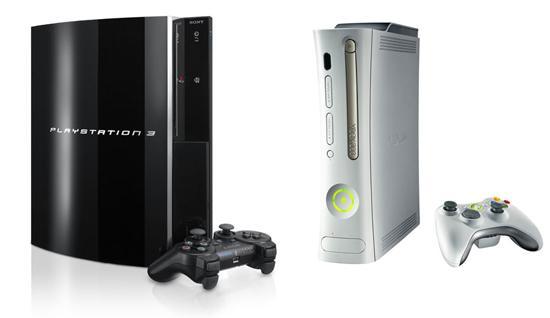
It's impressive to see just how far and how fast mobile computing has progressed within the last decade or so since it first became popular. Phones get bigger, faster, brighter, and do a lot more than any of us could have ever imagined. And here they are; big, bright, and fast, and at the point where they're about to pass the most powerful gaming consoles we have today when it comes to processing power.
Tony Tamasi, SVP of Content and Technology for Nvidia, recently predicted that the next generation of mobile devices rolling in will have processors that surpass those of popular gaming consoles like the PlayStation 3 and the Xbox 360. While it seems like that's a lot of processing power (because it is) it's not all that far-fetched of an idea due to the fact that the actual chipsets in those two particular consoles are actually 7 and 8 year old technology. In the mobile world, anything older than two years is considered ancient and would likely be comparable to a rock. Assuming the next rollout of mobile devices does indeed surpass current console technology, it's probably to be expected about this time considering that our mobile technology is only about ten years behind PC desktops.
Console systems normally last quite a bit longer than mobile technology does, so as long as our smartphones don't surpass the processor of a PS4 or the next gen Xbox then I think it's acceptable. Of course, the other half of the equation also plays an important role in how well a super speedy processor works, and that's the longevity of a device’s battery life once it's taken off life support - I mean charger.
Until we get more powerful batteries, a more powerful processor wouldn't do a whole lot of good. It would serve as nothing more than a battery sucker, which is why consoles and desktop PCs do so well in the first place with faster processors. They're huge gadgets that need to be constantly plugged in to a source in order to power on and even work. These devices were made to stay in one place constantly. But for the gadget on the move it's a little more difficult to find a solution that allows it to be both powerful and have decent battery life. Until that point, you're likely going to have to choose between one or the other.
Maybe I'm the only one that feels this way, but the way phones are now seem plenty fast to me. Everything is almost instant. Sure, you get the times where you grit your teeth and hold your phone tighter and give it the death stare because something is taking longer than normal (read: 5 seconds) to load. In the words of comedian Louis C.K., "Give it a second, it's sending signals to space!" I'm pretty sure no matter how fast or powerful the phone is we'll always get that impatient feeling when something takes longer than expected. We get used to something and anything out of the ordinary is just unacceptable.
To be fair, the same goes for battery life. You had flip phones and messaging phones that lasted 3-4 days varying on usage, and then you have the new smartphone owner who comes in three days after purchasing her brand new smartphone and complains because she's had to charge it 4 times already, stating there must be something wrong. I hate to be the bearer of bad news lady, but there’s nothing wrong with your phone. Welcome to the future! Your new best friend is a charger.
If I had to choose one, I’d pick battery life. Features have taken center stage over battery life for quite some time now, and I think features and apps have gotten to the point to where, for the most part, most new features are played out to be gimmicky. I don't really need Smart Scrolling or BlinkFeed. They're cool I suppose, but between the previously mentioned features and battery life, battery life would certainly be a lot more useful and practical to me.
What interests you more, readers? Would you rather see more powerful processors in phones and deal with shorter battery life, or do you think processors should wait until batteries have a chance to catch up? Let me know your thoughts!